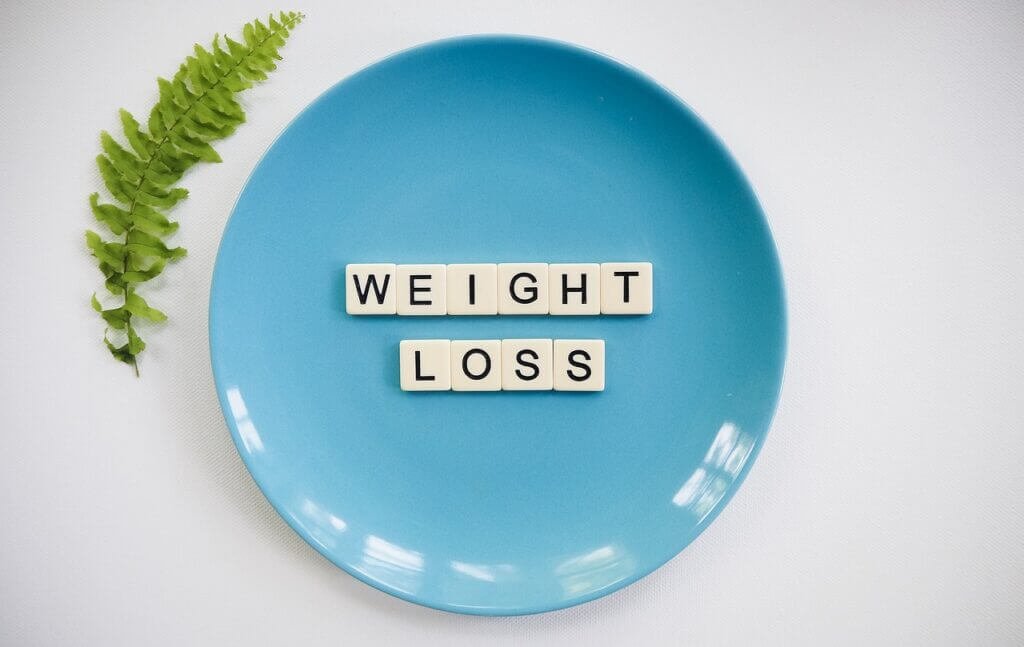If you’re looking to shed some extra pounds but are worried about the potential side effects on your health, you’re not alone. Many people are searching for ways to safely lose weight without compromising their well-being. Fortunately, there are several strategies you can adopt that prioritize your health while still achieving your weight loss goals. In this article, we will explore some practical tips and techniques that can help you embark on a safe and effective weight loss journey. From implementing healthy eating habits to incorporating regular physical activity, you’ll find valuable insights to support you on your path to a healthier you.
Understanding Healthy Weight Loss
Losing weight in a healthy and sustainable way is a goal that many people strive for. However, it’s important to approach weight loss with caution and prioritize your health above all else. Understanding the key principles of healthy weight loss will guide you on your journey and ensure that you achieve your goals while still taking care of your body.
Setting Realistic Goals
One of the most crucial aspects of healthy weight loss is setting realistic goals. It’s important to remember that weight loss is not a quick fix or something that can be achieved overnight. Instead, it should be viewed as a long-term commitment to improving your overall health and well-being. Setting realistic goals allows you to make steady progress and avoid feelings of frustration or disappointment.
When setting your weight loss goals, it’s essential to consider factors like your current weight, body composition, and overall health. Consulting with a healthcare professional can provide valuable insight and help you set achievable goals that align with your specific circumstances and needs.
Choosing a Sensible Timeline
In addition to setting realistic goals, choosing a sensible timeline is equally important. Rapid weight loss can have negative consequences on your health and may not be sustainable in the long run. It’s essential to aim for a gradual and steady weight loss of 1-2 pounds per week. This rate allows your body to adjust and adapt to the changes, minimizing the risk of nutritional deficiencies or muscle loss.
Remember, weight loss is not a race. Focusing on sustainable and gradual progress will lead to better outcomes and ensure that you can maintain your results in the long term.
Consulting a Healthcare Professional
When embarking on any weight loss journey, it’s always a good idea to consult with a healthcare professional. They can provide valuable guidance, monitor your progress, and ensure that you are losing weight in a safe and healthy manner.
A healthcare professional, such as a registered dietitian or a nutritionist, will assess your nutritional needs, help you develop a personalized meal plan, and provide ongoing support and education. They can also address any specific dietary concerns or underlying health conditions that may impact your weight loss journey.
Creating a Balanced and Nutritious Diet Plan
A well-rounded and nutritious diet plan is a crucial component of healthy weight loss. By nourishing your body with the right foods, you can promote weight loss while maintaining optimal health and well-being.
Understanding Caloric Deficit
At the core of any weight loss plan is the concept of a caloric deficit. To lose weight, you need to consume fewer calories than your body burns. This energy imbalance forces your body to tap into its fat stores for fuel, resulting in weight loss over time.
It’s important to understand that the ways in which you create a calorie deficit should be sustainable and healthy. Strive for a moderate deficit of 500-750 calories per day, which will allow for gradual weight loss while still providing your body with the energy it needs to function properly.
Incorporating Whole Foods
When it comes to creating a balanced diet plan, whole foods should be the foundation. Whole foods are minimally processed and contain an abundance of essential nutrients, including vitamins, minerals, fiber, and antioxidants. They are also lower in added sugars, unhealthy fats, and artificial additives compared to processed foods.
Incorporating a variety of fruits, vegetables, whole grains, lean proteins, and healthy fats into your diet is key. These nutrient-dense foods will not only support your weight loss efforts but also provide your body with the essential nutrients it needs for optimal functioning.
Portion Control
Controlling portion sizes is an effective strategy for managing your caloric intake and promoting weight loss. Even healthy foods can contribute to weight gain if consumed in excessive amounts.
Learning to listen to your body’s hunger and fullness cues can help you develop a healthier relationship with food and prevent overeating. Measuring and weighing your food, using smaller plates, and practicing mindful eating are all strategies that can assist you in controlling your portions effectively.
Balancing Macronutrients
Macronutrients, namely carbohydrates, proteins, and fats, are the three essential components of a healthy diet. Balancing these macronutrients is crucial for weight loss and overall health.
Carbohydrates provide your body with energy, so it’s important to include complex carbohydrates, such as whole grains, legumes, and fruits, in your diet. Proteins are essential for muscle repair and growth, so incorporating lean sources of protein like chicken, fish, tofu, or beans is vital. Healthy fats, found in foods like avocados, nuts, and olive oil, play a role in promoting satiety and providing essential fatty acids.
Striving for a well-rounded diet that includes all three macronutrients in appropriate proportions will not only support weight loss but also ensure optimal nutrition.
Focusing on Fiber-Rich Foods
Including fiber-rich foods in your diet is another important aspect of healthy weight loss. Fiber adds bulk to your meals, which can help you feel full and satisfied while consuming fewer calories. Additionally, fiber aids in digestion, promotes regular bowel movements, and supports overall gut health.
Fruits, vegetables, whole grains, legumes, and nuts are excellent sources of fiber. Aim to incorporate these foods into your meals and snacks to increase your fiber intake and support your weight loss efforts.
Limiting Added Sugars and Refined Carbohydrates
While carbohydrates are an essential part of a healthy diet, it’s important to differentiate between complex carbohydrates and refined carbohydrates. Refined carbohydrates, such as white bread, sugary cereals, pastries, and sugary beverages, are quickly digested and can lead to spikes in blood sugar levels.
To promote healthy weight loss, limit your intake of refined carbohydrates and added sugars. Opt for whole grains, such as brown rice and whole wheat bread, and satisfy your sweet tooth with natural sugars found in fruits.
Choosing Healthy Fats
Contrary to popular belief, fats are not the enemy when it comes to weight loss. Healthy fats are an essential part of a balanced diet and play a role in promoting satiety and supporting various bodily functions.
Include sources of healthy fats like avocados, nuts, seeds, olive oil, and fatty fish in your diet. However, be mindful of portion sizes, as fats are calorie-dense and can contribute to weight gain if consumed in excess.

Implementing Regular Physical Activity
While creating a healthy diet plan is key to weight loss, incorporating regular physical activity into your routine is equally essential. Exercise not only helps you burn calories but also improves cardiovascular health, increases muscle mass, and boosts overall well-being.
Finding an Exercise Routine You Enjoy
The best exercise routine is one that you enjoy and can stick to in the long term. Experiment with different types of exercises, such as running, cycling, swimming, dancing, or weightlifting, to find activities that you genuinely enjoy. By finding pleasure in exercise, you are more likely to stay motivated and make it a consistent part of your lifestyle.
Mixing Cardio and Strength Training
Incorporating a combination of cardiovascular exercise and strength training is beneficial for overall health and weight loss. Cardiovascular exercises, such as jogging, brisk walking, or cycling, help burn calories and improve cardiovascular fitness. Strength training exercises, on the other hand, help build lean muscle mass, which increases your metabolic rate and assists in weight loss.
Aim for a balance between cardio and strength training exercises to achieve optimal results. Consult with a fitness professional if needed to create a well-rounded exercise routine.
Gradually Increasing Intensity
As you progress in your fitness journey, it’s important to gradually increase the intensity and challenge of your workouts. This progression helps prevent plateauing and encourages continual improvement.
Start with moderate-intensity exercises and gradually increase the duration and intensity over time. Incorporating interval training, which alternates between high-intensity bursts and recovery periods, can also be an effective way to boost calorie burn and fitness levels.
Adding Movement Throughout the Day
In addition to structured exercise sessions, it’s important to incorporate movement throughout your day. Simple actions like taking the stairs instead of the elevator, going for short walks during your breaks, or parking your car farther away can make a significant difference in your overall activity level and calorie expenditure.
Small lifestyle modifications can add up and contribute to your weight loss efforts while improving your overall health.
Considering Professional Guidance
If you’re unsure about how to structure your exercise routine or have specific health concerns, it’s worth considering professional guidance. Personal trainers or fitness professionals can provide personalized advice, ensure proper form during workouts, and help you achieve your weight loss and fitness goals safely.
They can also adapt your exercise routine if you have any pre-existing conditions or injuries, ensuring that you are engaging in exercises that are suitable for your body and abilities.
Prioritizing Mental and Emotional Well-being
In the pursuit of weight loss, it’s easy to overlook the importance of mental and emotional well-being. However, mental and emotional health play a significant role in your overall success and ability to maintain a healthy lifestyle.
Adopting a Positive Mindset
Approaching your weight loss journey with a positive mindset is crucial. Instead of focusing solely on the number on the scale, shift your mindset to appreciate the non-scale victories, such as increased energy levels, improved mood, or better sleep quality.
Cultivate self-compassion and celebrate every step towards your goals, no matter how small. Remember that weight loss is a journey, and setbacks are a natural part of the process. Embracing a positive mindset will help you stay motivated and resilient throughout your journey.
Managing Stress Levels
Stress can often sabotage weight loss efforts by leading to emotional eating or cortisol release, which can contribute to the accumulation of belly fat. Finding healthy ways to manage and reduce stress is essential for successful weight loss.
Incorporate stress management techniques like meditation, deep breathing exercises, yoga, or engaging in hobbies that bring you joy. Regular exercise and getting enough sleep also play a crucial role in managing stress levels and promoting overall well-being.
Promoting Adequate Sleep
Adequate sleep is often overlooked but is essential for successful weight loss and overall health. Lack of sleep can disrupt hormone regulation, leading to increased hunger, cravings, and decreased energy levels.
Prioritize getting 7-9 hours of quality sleep each night. Establish a consistent bedtime routine, create a sleep-supportive environment, and avoid stimulating activities like screen time before bed. By prioritizing sleep, you set yourself up for success in your weight loss journey.
Engaging in Mindful Eating
Mindful eating is a practice that involves paying attention to the present moment while eating. It encourages you to be aware of the sensations, flavors, and textures of your food, as well as your hunger and fullness cues.
By practicing mindful eating, you can improve your relationship with food and prevent overeating. It allows you to enjoy your meals without guilt and makes you more in tune with your body’s needs.
Seeking Support from Loved Ones or Support Groups
Having a support system is invaluable when it comes to weight loss. Share your goals with loved ones and seek their support and encouragement. Joining support groups or online communities focused on healthy living and weight loss can also provide a sense of community and accountability.
Knowing that you have people who believe in you and are cheering you on can make a significant difference in your motivation and success.
Considering Therapy or Counseling
If you’re struggling with emotional eating, body image issues, or disordered eating patterns, seeking therapy or counseling can be immensely helpful. Mental health professionals can provide the necessary support and guidance to navigate these challenges and develop a healthy relationship with food and your body.
Therapy or counseling can address any underlying emotional or psychological factors that may be hindering your weight loss progress. Remember, taking care of your mental and emotional well-being is just as important as taking care of your physical health.

Avoiding Crash Diets and Unhealthy Practices
In the quest for rapid weight loss, it can be tempting to turn to crash diets or unhealthy practices. However, these approaches can have detrimental effects on your health and are not sustainable in the long term.
Understanding the Risks of Crash Diets
Crash diets, which involve severe caloric restriction and drastic changes in eating patterns, may result in initial weight loss. However, they often lead to muscle loss, nutrient deficiencies, and metabolic adaptations that can hinder long-term weight maintenance.
Crash diets can also negatively impact your relationship with food, leading to disordered eating patterns and a cycle of yo-yo dieting. It’s important to prioritize your health and avoid quick-fix solutions that can compromise your well-being.
Avoiding Severe Caloric Restriction
Severely restricting your caloric intake can have serious consequences on your body and overall health. It can slow down your metabolism, lead to muscle loss, nutrient deficiencies, and disrupt your hormonal balance.
Rather than focusing on extreme calorie restrictions, aim for a moderate caloric deficit that allows for steady weight loss. This approach will ensure that your body is receiving the necessary nutrients it needs to function optimally and avoid potential health risks.
Steering Clear of Fad Diets
Fad diets often promise quick and dramatic results, but they are often unsustainable and can have negative health effects. These diets typically eliminate entire food groups or focus on specific “miracle” foods, resulting in imbalanced nutrient intake and inadequate fuel for your body.
Instead of jumping on the latest diet trend, focus on adopting a well-rounded, balanced diet that includes a variety of whole foods. This approach will provide your body with the nutrients it needs while ensuring sustainable weight loss.
Not Skipping Meals
Skipping meals, especially breakfast, in an effort to reduce caloric intake can be counterproductive for weight loss. This practice can lead to increased hunger, overeating later in the day, and a slower metabolism.
Eating regular, balanced meals and incorporating healthy snacks when needed throughout the day can help stabilize your blood sugar levels, maintain energy levels, and prevent excessive hunger and cravings.
Recognizing Warning Signs of Unhealthy Weight Loss Practices
It’s crucial to recognize the warning signs of unhealthy weight loss practices and seek help if needed. Rapid weight loss, obsession with food or body image, extreme caloric restriction, frequent weight fluctuations, and feelings of guilt or shame after eating are all red flags that indicate a need for professional assistance.
Prioritizing your health and well-being should always be the primary focus. If you notice any warning signs or feel overwhelmed by your weight loss journey, reach out to a healthcare professional or mental health specialist for support.
Monitoring Progress and Making Adjustments
Monitoring your progress and making adjustments along the way are key to ensuring that you stay on track with your weight loss goals and continuously make progress.
Tracking Weight Loss and Body Measurements
Tracking your weight loss progress and body measurements can provide valuable insights and help you stay motivated. Keep a record of your weight, measurements, and body fat percentage, if possible. However, it’s important to remember that weight alone is not always an accurate reflection of progress, as it can be influenced by factors like water retention and muscle gain.
In addition to tracking your weight, pay attention to other indicators of progress, such as increased energy levels, clothing fitting differently, or improvements in physical fitness.
Assessing Health Markers
Weight loss is not just about appearance but also about improving your overall health. Monitoring your health markers, such as blood pressure, cholesterol levels, blood sugar levels, and sleep quality, can help gauge the impact of your weight loss efforts on your well-being.
Consulting with a healthcare professional to assess your health markers periodically can provide valuable insights and help you make any necessary adjustments to your weight loss plan.
Reassessing Goals and Strategies Regularly
As you progress on your weight loss journey, it’s important to reassess your goals and strategies regularly. Your initial goals may need to be adjusted or modified as you gain more knowledge and experience.
Reevaluate whether your goals are still realistic and align with your current circumstances and lifestyle. Assess your strategies and make adjustments if needed to ensure continued progress.
Staying Accountable and Motivated
Staying accountable and motivated throughout your weight loss journey is crucial for long-term success. Find accountability partners, whether it’s a workout buddy, a support group, or an online community, to help you stay on track.
Find ways to reward yourself for achieving milestones and celebrate your progress. Remember to focus on the non-scale victories and the positive changes happening within your body and overall well-being.
Seeking Professional Assistance if Needed
If you find yourself struggling or facing challenges along your weight loss journey, don’t hesitate to seek professional assistance. Registered dietitians, nutritionists, personal trainers, or therapists specializing in weight management can provide the guidance and support you need to overcome obstacles and achieve your goals.
You don’t have to navigate this journey alone, and reaching out for help is a sign of strength and a commitment to your well-being.

Understanding the Importance of Adequate Hydration
Hydration is an often overlooked component of weight loss that can have a significant impact on your success. Ensuring that you are adequately hydrated is essential for overall health and can support your weight loss efforts.
Benefits of Drinking Water for Weight Loss
Drinking water offers numerous benefits for weight loss. It helps control appetite and prevent overeating, promotes proper digestion and nutrient absorption, and aids in the elimination of waste products from the body.
Replacing high-calorie beverages like sugary sodas or juices with water is a simple yet effective strategy for reducing overall calorie intake and promoting weight loss.
Determining Daily Fluid Intake
Determining your daily fluid intake can vary based on various factors, including your weight, physical activity level, and climate. As a general guideline, aim to drink at least eight 8-ounce glasses of water per day, or about 2 liters.
However, individual water needs may vary, so pay attention to your body’s thirst cues and adjust your intake accordingly. If you engage in intense exercise or live in a hot climate, you may need to increase your fluid intake.
Tips for Increasing Water Consumption
If you struggle with drinking enough water throughout the day, there are several tips and tricks you can implement to increase your water consumption:
- Carry a reusable water bottle with you at all times to serve as a reminder to hydrate.
- Set reminders on your phone or use hydration apps to prompt you to drink water regularly.
- Infuse your water with slices of fruits, vegetables, or herbs to add flavor and make it more enjoyable.
- Drink a glass of water before each meal to help control your appetite.
- Sip on herbal tea or consume hydrating foods like watermelon, cucumbers, or celery to increase your fluid intake.
Remember, staying hydrated is a simple yet powerful tool in your weight loss journey and overall well-being.
Addressing Emotional Eating and Food Cravings
Emotional eating and food cravings can present significant challenges when trying to lose weight. Learning how to address these issues in a healthy manner is essential for successful weight loss.
Identifying Triggers and Underlying Emotions
Emotional eating often stems from underlying emotions or triggers. Identifying these triggers and understanding the emotions associated with them is the first step towards addressing emotional eating.
Keep a journal to track your food cravings and emotional patterns. Ask yourself what emotions you are experiencing when the cravings arise and explore healthier ways to address those emotions, such as talking to a friend, practicing relaxation techniques, or engaging in a favorite hobby.
Developing Healthy Coping Mechanisms
Finding healthy coping mechanisms is crucial for redirecting emotional eating habits. Instead of turning to food to soothe your emotions, consider other activities that can provide comfort and distraction.
Engaging in physical activity, practicing relaxation techniques like deep breathing or meditation, reading a book, taking a warm bath, or engaging in creative pursuits can all be effective ways to cope with stress or challenging emotions without resorting to food.
Finding Alternative Activities
When cravings strike, finding alternative activities can help distract your mind and reduce the intensity of the craving. Engage in activities that keep your mind and body occupied, such as going for a walk, calling a friend, listening to music, or trying a new hobby.
By finding healthier alternatives to food as a source of comfort or entertainment, you can break the cycle of emotional eating and make progress towards your weight loss goals.
Practicing Mindful Eating
Mindful eating involves paying attention to every aspect of the eating experience, including the taste, texture, and smell of the food, as well as your hunger and fullness cues. It allows you to cultivate a greater awareness of your body’s needs and signals.
Practicing mindful eating can help you slow down, savor your food, and appreciate the nourishment it provides. It can also prevent overeating by helping you recognize feelings of fullness and satisfaction.
Considering Supportive Therapies
If emotional eating or food cravings persist despite your best efforts, seeking support from therapeutic interventions can be beneficial. Cognitive-behavioral therapy (CBT), dialectical behavior therapy (DBT), or other evidence-based therapies can provide valuable tools and techniques to address emotional eating patterns and promote healthier coping mechanisms.
Registered dietitians or nutritionists with expertise in emotional eating can also provide guidance and personalized strategies to help you overcome these challenges and achieve your weight loss goals.

Building a Supportive Environment
Building a supportive environment is crucial for maintaining motivation, staying on track, and achieving your weight loss goals. Surrounding yourself with individuals who support and encourage your efforts can make a significant difference in your journey.
Surrounding Yourself with Supportive People
Seek out the company of supportive individuals who are committed to living a healthy lifestyle. Surrounding yourself with positive influences can help you stay motivated, stay on track, and share experiences and challenges. Friends, family members, or colleagues who have similar goals or interests can offer invaluable support and camaraderie.
Communicating Your Goals and Needs
Take the initiative to communicate your weight loss goals and needs to your loved ones. Let them know about your journey, successes, and challenges. By sharing your goals and needs, you can clarify your expectations and enlist their support.
Having open and honest conversations about your weight loss journey can also help dispel any misunderstandings or misconceptions and foster a greater understanding of your motivations and aspirations.
Engaging in Healthy Habits with Others
Encourage your loved ones to join you in adopting healthy habits and making positive lifestyle changes. It’s easier to stay committed to your weight loss goals when you have people around you who share the same ambitions.
Plan healthy meals together, go for walks or exercise classes as a group, or engage in other physical activities that everyone enjoys. By engaging in healthy habits with others, you create a supportive environment that fosters success and makes the journey more enjoyable.
Exploring Online Communities and Resources
In addition to seeking support from those in your immediate circle, explore online communities and resources focused on weight loss and healthy living. Social media platforms, online forums, or specialized apps provide opportunities to connect with individuals who share similar goals and challenges.
Participating in these communities can provide additional support, motivation, and a sense of accountability. You can also find valuable tips, advice, and inspiration from others who are on a similar journey.
Celebrating Non-scale Victories
While reaching your desired weight may be the ultimate goal, it’s important to celebrate the non-scale victories along the way. Non-scale victories refer to the positive changes that occur as a result of your weight loss efforts, even if they don’t directly reflect on the scale.
Celebrate milestones like increased energy, improved fitness levels, better sleep, or feeling more confident in your clothes. Acknowledging and celebrating these achievements will boost your motivation and reinforce your commitment to a healthy lifestyle.
Knowing When to Seek Professional Help
While many individuals can safely engage in weight loss efforts on their own, some situations may require professional help. It’s important to recognize when seeking assistance from healthcare professionals is necessary for your well-being and weight loss journey.
Recognizing Signs of Disordered Eating
If you notice signs of disordered eating patterns, such as extreme food restrictions, binge-eating episodes, or an unhealthy obsession with weight and body image, it’s crucial to seek professional help. Disordered eating can have severe physical and psychological consequences if left unaddressed.
Consulting with a mental health professional or a registered dietitian with expertise in disordered eating can provide a compassionate, non-judgmental environment to address these concerns and develop a healthy relationship with food and your body.
Understanding When Dietary Intervention is Necessary
Some individuals may have underlying health conditions or unique dietary needs that require specialized intervention. Conditions such as diabetes, heart disease, or food allergies may necessitate the guidance of a registered dietitian or nutritionist.
If you have an existing health condition or dietary restrictions, consulting with a healthcare professional can ensure that you are receiving appropriate guidance and support tailored to your specific needs.
Seeking Assistance from Registered Dietitians or Nutritionists
Registered dietitians and nutritionists are valuable resources for individuals seeking weight loss guidance. These professionals have specialized knowledge in nutrition and can provide evidence-based advice and personalized meal plans.
A registered dietitian or nutritionist can help you understand portion sizes, identify nutrient deficiencies, address emotional eating, create a well-balanced diet plan, and provide ongoing support and accountability.
Considering Medical Weight Loss Programs
In certain cases, medical weight loss programs may be appropriate and provide the necessary support for individuals with significant weight loss goals or health concerns. These programs typically involve a team of healthcare professionals, including physicians, dietitians, and psychologists, who collaborate to develop a comprehensive weight loss plan.
If you believe that a medical weight loss program may be an appropriate option for you, consult with a healthcare professional to discuss the available options and determine the most suitable approach for your needs.
Being Aware of Underlying Health Conditions
Weight loss efforts should always consider any underlying health conditions that may impact your journey. Conditions such as hypothyroidism, polycystic ovary syndrome (PCOS), or hormonal imbalances can affect weight loss and require specialized attention from healthcare professionals.
If you suspect that an underlying health condition may be hindering your weight loss progress, consult with a healthcare professional for proper diagnosis and guidance.
In conclusion, understanding healthy weight loss requires setting realistic goals, choosing a sensible timeline, and seeking advice from healthcare professionals. It involves creating a balanced and nutritious diet plan, implementing regular physical activity, prioritizing mental and emotional well-being, and avoiding crash diets and unhealthy practices. Monitoring progress, staying hydrated, addressing emotional eating, building a supportive environment, and knowing when to seek professional help are all vital components of a successful weight loss journey. Remember, the key is to prioritize your health, make sustainable lifestyle changes, and embrace a positive mindset throughout the process. With the right approach, you can safely lose weight and achieve a healthier, happier you.



